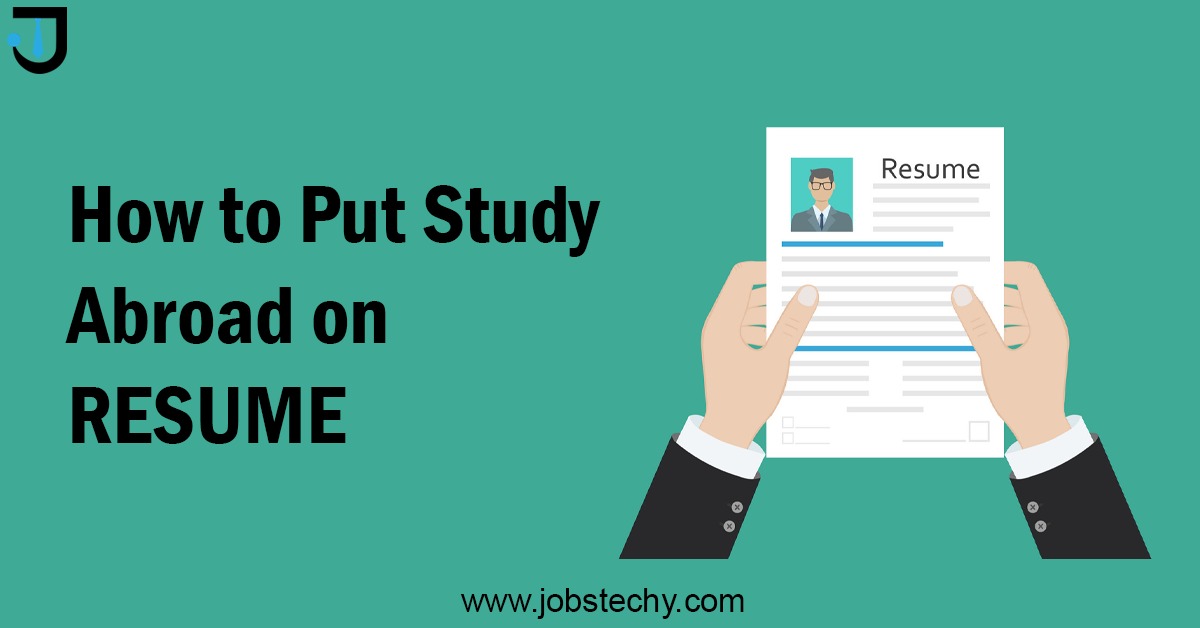
Your resume is your and your study abroad experience is a standout visa stamp that catches every employer's eye.
In today's global job market, having a study abroad experience is like holding a golden ticket—it showcases your adaptability, cultural sensitivity, and willingness to step out of your comfort zone.
That's where this guide comes in. You have to turn your international experience into a compelling part of your professional story.
Whether you visited the streets of Paris, conducted research in Tokyo, or interned in Buenos Aires, this guide will help you articulate these experiences on your resume in a way that resonates with your future employers.
Let's dive deep into how you can explore more opportunities!
When you're in a sea of job applicants, all vying for that dream role.
What makes you stand out?
Your study abroad experience is not just a line on your resume, it's evidence of your unique skills and perspectives.
When you include your study abroad journey, you're not just listing a travel experience, you're showcasing a transformative chapter of your life that has equipped you with exceptional skills.
Firstly, there's cultural awareness. Your time spent abroad didn't just acquaint you with different cultures, it immersed you in them.
You've explored and adapted to new social norms, perhaps even tackled language barriers, which makes you an invaluable asset in any diverse team or global project.
Then there are your language skills.
Whether you've achieved fluency or just learned to order your coffee in another tongue, these skills demonstrate your ability to communicate effectively across cultures - a highly sought-after ability in our increasingly interconnected world.
Adaptability:
Lastly, adaptability – your secret superpower.
Adapting to life in a foreign country shows employers that you're not just capable of handling change, you thrive in it.
You're a problem-solver, a quick learner, and someone who can comfortably step into unfamiliar situations and make a positive impact.
Incorporating your study abroad experience on your resume vividly illustrates these qualities, making you a memorable and desirable candidate in a competitive job market. You're not just another applicant but a global citizen with a story to tell. You have to make sure your resume tells it effectively!
How To Put Study Abroad On Resume
As you add your study abroad experience into your resume, think of it like curating an art exhibit.
You want to display only the most impactful pieces that will capture your audience's attention.
The key here is relevance and resonance with the job you're eyeing.
Start by reflecting on your time abroad. What aspects align most closely with the job you're applying for?
If it's a role in international relations, emphasize courses or projects that involve understanding different cultures or global policies.
Were you an engineering student working on a sustainable energy project in Germany? That's a perfect highlight for a technical or environmental role.
Take advantage of internships or work experiences you had while abroad. These are goldmines of practical experience, demonstrating your ability to apply skills in a real-world, international context.
They show you can navigate the academic world and the professional sphere across different cultures and work environments.
Also, think about the soft skills you honed during your stay.
Did you develop negotiation skills while navigating marketplaces in Marrakech?
Or you enhanced your problem-solving abilities by finding your way around the maze-like streets of Venice. These experiences, while seemingly mundane, paint a picture of your adaptability and resourcefulness.
Remember, it's not about listing every experience but selecting those that resonate most strongly with your desired role. Your study abroad experience is a treasure trove of stories and skills.
Adding your study abroad experience on your resume is akin to storytelling with precision and purpose.
It's not just what you say but how you say it.
Start by using action verbs to bring your experiences to life. Words like "negotiated," "collaborated," "researched," or "developed" instantly lend dynamism to your account.
Quantifiable achievements add substance.
Did you improve your language proficiency significantly? State something like, “Achieved B2 level in Spanish within six months.”
If you worked on a project, specify your contribution and its impact, for example,
“Developed a market entry strategy for a local startup, increasing its customer base by 30%.”
Language proficiency deserves a special mention. If your study abroad experience helped you become fluent or conversant in a new language, highlight this. Employers value multilingual candidates, which speaks to your ability to communicate in diverse environments.
Examples:
When integrating your study abroad experience into your resume, certain pitfalls can detract from its value. The first misstep needs to be more specific.
In sum, your study abroad experience can significantly bolster your resume, provided it's presented with clarity, relevance, and a touch of strategic storytelling.
It’s not just about where you went or what you did; it's about how this experience has shaped you into an attractive candidate for your desired role.
This experience is a mosaic of skills, achievements, and personal growth. It’s not just a chapter in your life story but a defining element of your professional identity.
You must highlight key aspects like relevant courses, internships, language proficiency, and quantifiable achievements. You transform this experience from a mere travel log into a testament to your global competence.